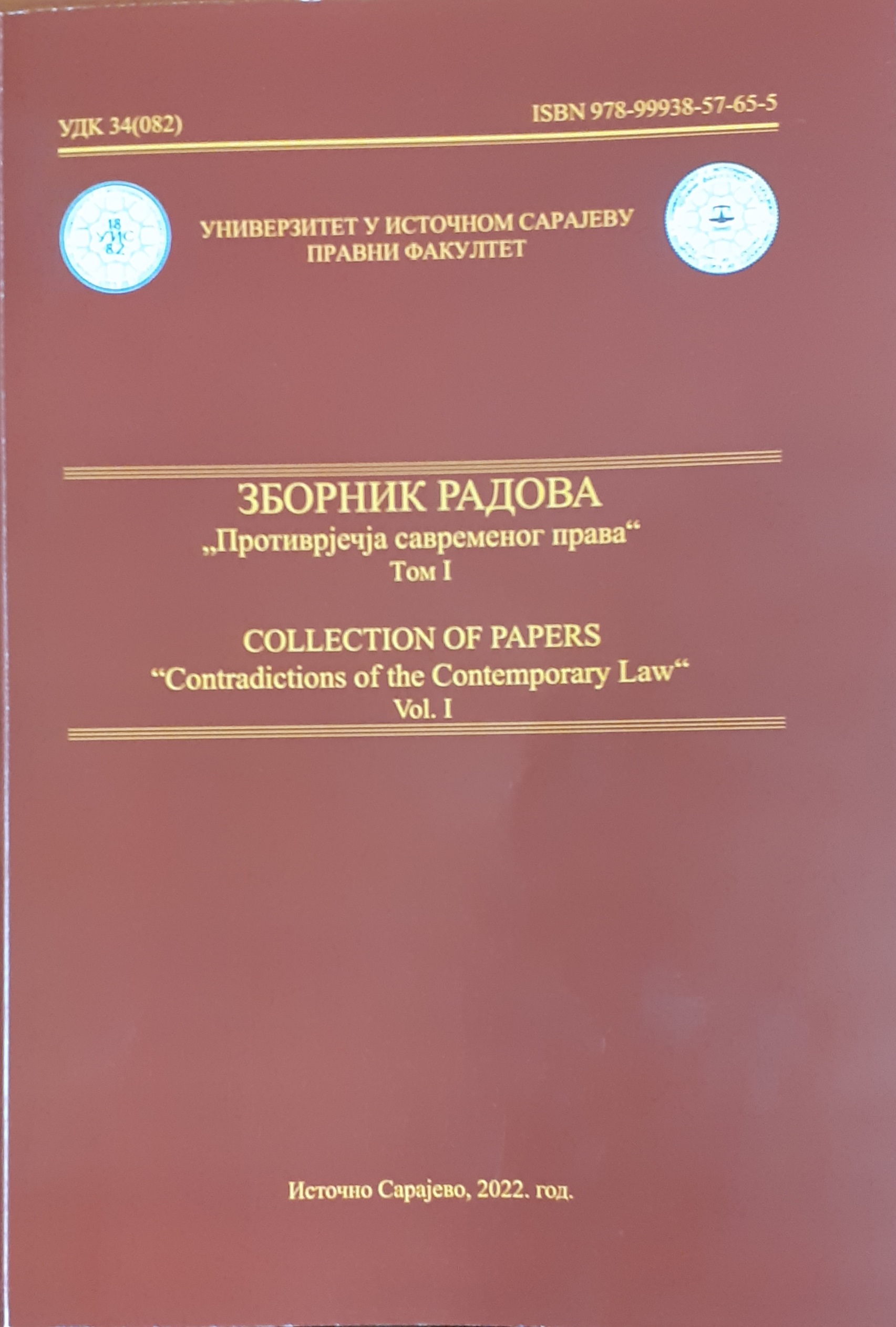Контролна тела као четврта грана власти
Control Bodies as a Fourth Branch of Government
Author(s): Mijodrag Radojević
Subject(s): Law, Constitution, Jurisprudence, Governance, Politics and law
Published by: Правни факултет Универзитета у Источном Сарајеву
Keywords: State authorities; Judiciary; INdependent control bodies; Regulatory agency; Ombudsman; Government rights; Legitimacy; Responsible government; Constitutional democracy;
Summary/Abstract: In this paper, the intention is to reexamine the concept of the fourth branch, together with the independent control bodies and criticism of the separation of powers in modern theory. The author explains the debate about the Fourth branch at the theoretical level and the normative-institutional level. Separation of powers is the most important constitutional and political theory. According to this theory, the right organization of government guarantees the freedom. In constitutional law, separation of powers is the criteria for the constitutionalization of the highest state authority and the classification of political systems. Combined with other ideas and theories, it is a necessary condition for the rule of law and democracy. That is why it has an important place in a liberal state and is applied in most legal systems. The separation of powers, which until the middle of 20th century had the status of a myth, is strongly contested in modern theory. Criticism has identified its shortcomings. Classical theory is outmoded and not adapted to reality., that is, it is unable to fulfill its role in balancing the branches of state power and protecting human rights. Meanwhile, from the second half of the 18th century, a number of institutions and constitutional structures emerged that were not covered by the traditional separation of powers. The mode of the functioning of the executive power has changed with the emergence of a professional and depoliticized bureaucracy. Independent agencies exercise regulatory and control powers, tasks distinct from the legislative, executive and judicial functions. The reconstruction of the division of power means that instead of of a trichotomous scheme of government, we have a fourth branch of state government. The origin of this idea is in the United States of America. The development of the Administrative state and public agencies has fueled the debate about the "new" separation of powers and independent institutions. In other parts of the world, this debate has not had such intensity. The concept of the fourth branch did not arouse much interest in Europe, a opposed to some African countries and in some Latin American countries which came as result of changes in public policy. Independent monitoring institutions were given a special constitutional role under the title "Institutions for Protecting Constitutional Democracy" in the Constitution of the Republic of South Africa of 1996. The main function of independent control institutions is not in management or governance, but in investigative and and regulatory functions, calling other pubic authorities to account. The author concludes that the criticism of the separation of powers is closely related to the idea of the fourth branch and independent institutions. The concept of the fourth branch has the prospect of representing a rounded systematic theory of the organization of government in the future if it overcomes its limitations.
Book: Зборник радова "Противрјечја савременог права" Том I
- Page Range: 442-462
- Page Count: 21
- Publication Year: 2022
- Language: Serbian
- Content File-PDF

